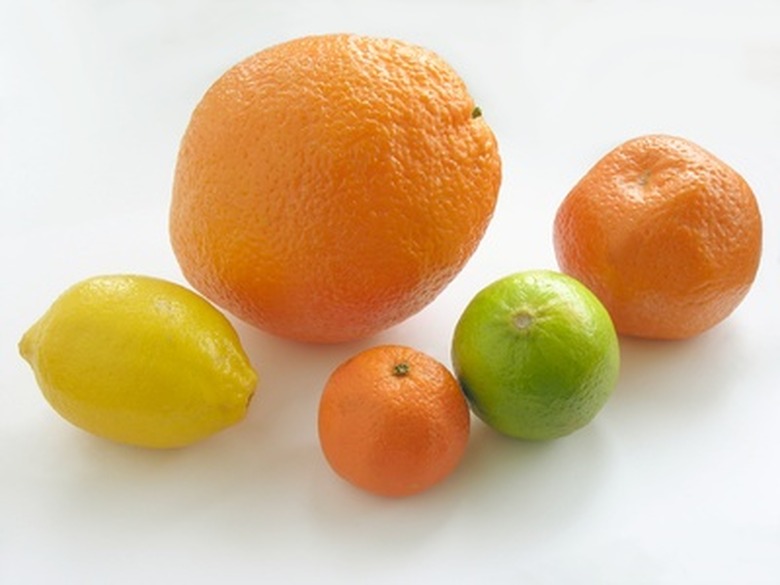Tips For Mulching Citrus Trees
Generally speaking, application of a mulch in a garden provides many benefits. Citrus trees grow best when their soil is fertile and consistently moist and when weed competition is low–all conditions that are improved with the use of mulch. Don't be overzealous with the use of mulch around citrus as too much mulch or the wrong kind of mulch can create less-than-desirable outcomes. When in doubt, consult a local plant nursery or your cooperative extension office for advice based on your climate, soil, and insect and disease threats in your area.
Mulch Away From Trunk
Root and soil fungus is a key concern for all types of citrus trees in the home landscape. The risk for fungal problems increases as soil moisture increases. Depending on your region's soil and the specific irrigation schedule in your garden, keep mulch well away from the trunk of your citrus tree. This is a fine balance between the benefit of mulch retarding weeds and retaining soil moisture for the roots while also allowing the soil and tree trunk to dry readily and not harbor fungus. Keep mulch at least 1 foot away from the citrus tree's trunk, and if soils are always irrigated, keep the soil immediately under the tree's canopy free from mulch. If you do cultivate under the tree with a hoe, do so lightly so you do not damage the citrus tree's surface roots.
- Generally speaking, application of a mulch in a garden provides many benefits.
- If you do cultivate under the tree with a hoe, do so lightly so you do not damage the citrus tree's surface roots.
Mulch Depth
Within the citrus tree orchard, scatter mulch to a depth of 2 to 4 inches. This depth is deep enough to shade the soil, retard weed germination and reduce soil moisture evaporation but not so deep as to reduce oxygen levels in the topsoil or keep soil moisture levels too wet and encourage fungal issues.
Use Organic Mulch
Organic mulches, those that are derived from dead plant materials, may be better overall than using plastic, rubber or rock, depending on your local soil and climate. Overall, the organic mulch degrades to improve the nutrition and texture of soil as well as encourage beneficial microorganisms in the soil. Inorganic mulches typically do not and can retain heat from the sun, increasing soil and surface temperatures, which may lead to the citrus tree's demand for irrigation.
Use an Acidic-Forming Mulch
Unless your native soil is already quite acidic (pH below 7.0), using an organic mulch that decays and lowers pH can diminish nutrient deficiencies that cause chlorosis, or yellowing of leaves. Soils that are acidic tend to allow freer root absorption of iron, magnesium and manganese. In neutral to alkaline soils these micro-nutrients are not readily absorbed and sickly yellow-green to pale yellow foliage develops. Acid-forming organic mulches include pine bark, pine bark fines, pine straw, coffee grounds and oak leaf mold.
- Within the citrus tree orchard, scatter mulch to a depth of 2 to 4 inches.
- Unless your native soil is already quite acidic (pH below 7.0), using an organic mulch that decays and lowers pH can diminish nutrient deficiencies that cause chlorosis, or yellowing of leaves.
Pull Back Mulch for Frost
If winter threatens a nighttime frost, pulling back mulch the morning before the expected frost allows the sun to heat the soil well under and around the tree. Then at night as air temperatures drop, radiant heat from the soil is captured by the citrus tree's leaves and branches, potentially protecting it from harsh cold damage.
References
- Texas A&M University: Home Fruit Production–Limes
- "Your Florida Landscape"; Robert J. Black and Kathleen C. Ruppert, eds.; 1998
- Marco Eagle News: Gardening–Citrus Trees 101
